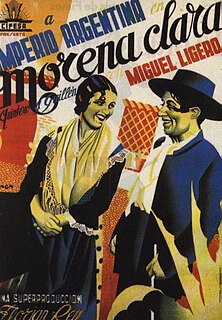
The Gipsy Kings are a group of flamenco, salsa and pop musicians from Arles and Montpellier in the south of France, who perform in Andalusian Spanish. Although group members were born in France, their parents were mostly gitanos, Spanish gypsies who fled Catalonia during the 1930s Spanish Civil War. They are known for bringing Catalan rumba, a pop-oriented music distantly derived from traditional flamenco music, to worldwide audiences. The group originally called itself Los Reyes.

Gypsy Rose Lee was an American burlesque entertainer and vedette famous for her striptease act. Also an actress, author, and playwright, her 1957 memoir was adapted into the 1959 stage musical Gypsy.

Gypsy is a 1959 musical with music by Jule Styne, lyrics by Stephen Sondheim, and a book by Arthur Laurents. Gypsy is loosely based on the 1957 memoirs of Gypsy Rose Lee, the famous striptease artist, and focuses on her mother, Rose, whose name has become synonymous with "the ultimate show business mother." It follows the dreams and efforts of Rose to raise two daughters to perform onstage and casts an affectionate eye on the hardships of show business life. The character of Louise is based on Lee, and the character of June is based on Lee's sister, the actress June Havoc.
In music, the Phrygian dominant scale is the fifth mode of the harmonic minor scale, the fifth being the dominant. Also called the altered Phrygian scale, dominant flat 2 flat 6 (in jazz), the Freygish scale (also spelled Fraigish), or simply the fifth mode of the harmonic minor scale. It resembles the scale of the Phrygian mode but has a major third. In the Berklee method, it is known as the Mixolydian ♭9 ♭13 chord scale, a Mixolydian scale with a lowered 9th (2nd) and lowered 13th (6th), used in secondary dominant chord scales for V7/III and V7/VI.
The term Gypsy scale refers to one of several musical scales named after their supported and associated with Romani or "Gypsy" music:

Thinner is a 1984 novel by Stephen King, published under his pseudonym Richard Bachman.

Thinner is a 1996 American body horror film directed by Tom Holland and written by Michael McDowell and Holland. The film is based on Stephen King’s 1984 novel of the same name and stars Robert John Burke, Joe Mantegna, Lucinda Jenney, Michael Constantine, Kari Wührer and Bethany Joy Lenz.
Hungarian scale or Hungarian Gypsy Scale is a name given by different authorities to two different scale forms.
The Hungarian minor scale, double harmonic minor scale, or Gypsy minor scale, is a type of combined musical scale. It is the fourth mode of the double harmonic scale. It is the same as the harmonic minor scale, except that it has a raised fourth scale degree. Its tonal center is slightly ambiguous, due to the large number of half steps. Melodies based on this scale have an exotic, romantic flavor for listeners accustomed to more typical Western scales.
Gypsy jazz is a style of jazz generally accepted to have been started by the Romani guitarist Jean "Django" Reinhardt in Paris during the 1930s. Because its origins are in France, and Reinhardt was from the Manouche Roma clan, gypsy jazz is often called by the French name "jazz manouche", or alternatively, "manouche jazz" in English language sources.

El Retorno de Walpurgis, also known as Curse of the Devil and The Black Harvest of Countess Dracula, is a 1972 Mexican-Spanish horror film that is the seventh in a series about the werewolf Count Waldemar Daninsky, played by Paul Naschy. This film ignored the events in all of the earlier Hombre Lobo films and began a whole new origin for the Wolfman.
Gypsy is a name for the Romani people, an ethnic group of South Asian origin.

The Spanish Dancer is a 1923 American silent costume epic starring Pola Negri as a gypsy fortune teller, Antonio Moreno as a romantic count, and Wallace Beery as the king of Spain. The film was directed by Herbert Brenon and also features a five-year-old Anne Shirley, appearing under the name "Dawn O'Day." The film survives today.

"Gypsy" is a song by Colombian singer-songwriter Shakira, from her eighth studio album She Wolf (2009). The song was chosen as the fourth and final single from the album by Epic Records. It was released internationally on 26 March 2010; in the United States, "Gypsy" was released as a CD single on 12 April 2010. The Spanish-language version "Gitana" was released as a digital promotional single on 1 March 2010. Written by Shakira, Amanda Ghost, Carl Sturken and Evan Rogers, the lyrics of the song describe one's life travelling as a "gypsy". The song draws heavy influences from Indian bhangra music.

This article is about Spanish 1954 film. For 1994 Venezuelan telenovela, see Morena Clara (telenovela).
It is estimated that there are one million Romani people in the United States. Though the Romani population in the United States has assimilated into American society, the largest concentrations are in Southern California, the Pacific Northwest, Texas and the Northeast as well as in cities such as Chicago and St. Louis. The Romani, ethnically and genealogically different from other Europeans, began settling in America in the mid-19th century.
"Nardis" is a composition by American jazz musician Miles Davis. It was written in 1958, during Davis's modal period, to be played by Cannonball Adderley for the album Portrait of Cannonball. The piece has come to be associated with pianist Bill Evans, who recorded it repeatedly.
The Gypsy and the King is a 1946 Spanish film directed by Manuel Bengoa.









